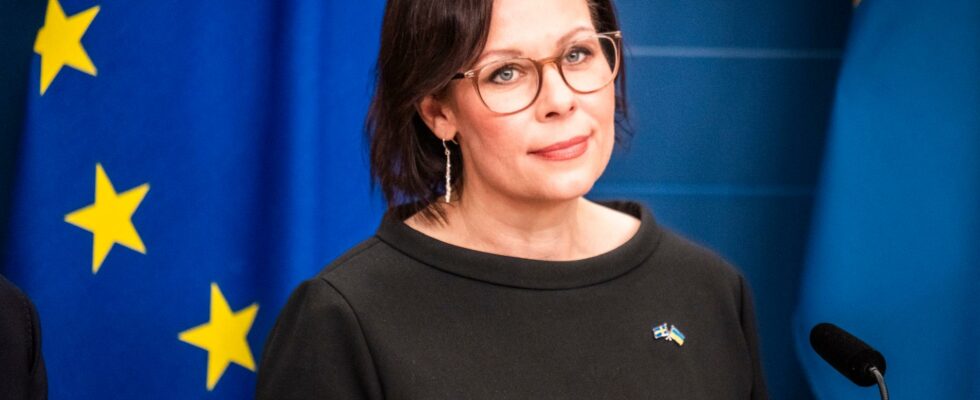unsaveSave
expand-left
full screen Foreign Minister Maria Malmer Stenergard (M) during a press conference in Rosenbad in September. Photo: Magnus Hjalmarson Neideman/Svd/TT
A number of Western countries are questioning the weekend election in Georgia, which ended with the pro-Russian ruling Georgian Dream party declaring victory.
Sweden’s foreign minister expresses concern. During the day, protests are expected in Tbilisi.
“Seriously concerned about the irregularities in Georgia’s elections as reported by Osse/Odihr and other observers,” writes Maria Malmer Stenergard (M) on X.
In a first statement from the International Election Observation Mission IEOM, which includes the organizations Osse and Odihr, reports of widespread pressure against voters and mapping of voters.
“To restore trust, I urge the Georgian authorities to credibly address this concern in an inclusive political process,” writes Malmer Stenergard.
Calls for protests
Among others, the foreign ministers of Denmark, Norway and France also express concern in statements on X, as does EU Council President Charles Michel and Foreign Minister Josep Borrell. Russia, Hungary, Armenia and Azerbaijan, on the other hand, congratulate Georgian Dream on the victory.
During election day, there were a number of reports of irregularities. The opposition has claimed electoral fraud and accused the ruling party of a “constitutional coup”.
The country’s EU-friendly president Salomé Zourabichvili, who has a mainly ceremonial role, however, has accused Russia of infiltrating the election and called on the people to protest on Monday.
Continued EU ambition
The election was described in advance as a choice of fate, where the result was judged to determine whether the Caucasian country is governed closer to the EU or Russia.
In recent years, the government in Tbilisi has introduced a series of Russian-inspired laws that severely restrict civil society and fundamental rights, which are seen as undermining Georgia’s EU ambitions. On Monday, Prime Minister Irakli Garibashvili claims that the goal remains to join the EU by 2030.
State-controlled media in Georgia hail the election results and refer to OSCE observers, but without mentioning the reported irregularities.
The Organization for Security and Cooperation in Europe (Osse) works, among other things, to protect human rights, the rules of democracy and the principles of the rule of law in the member countries. The Office for Democratic Institutions and Human Rights (Odihr) is the OSCE’s election monitoring organization.
